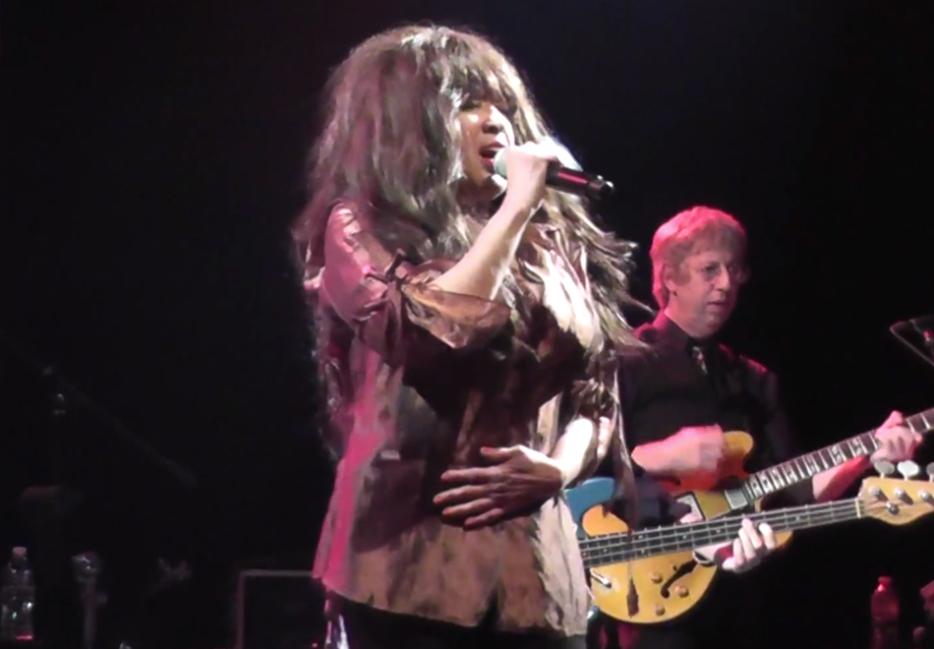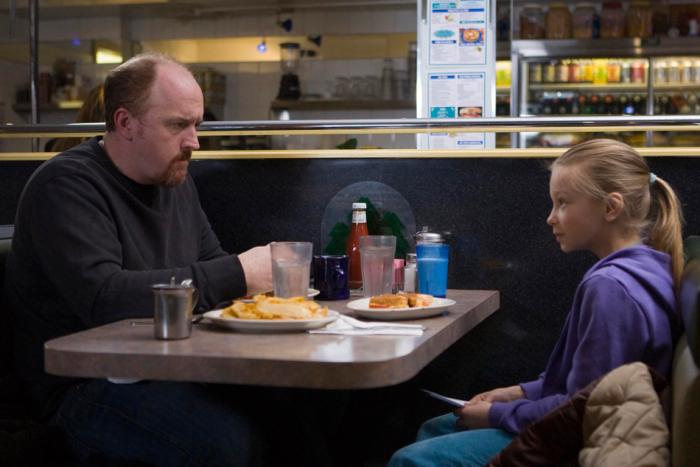The bus ride to this year’s Pop Montreal was like getting shipped between quarantine zones. I had planned to show up a couple days early, hang out with friends, conduct a grand tour of patisseries, but then, upon arrival, my throat resembled those scale-hardened aquifers found by desperate explorers. (NB, about the pastries: Cheskie for rugelach, Boulangerie Guillaume for almond croissants, Mamie Clafoutis for a compressed land mine of butter and chocolate simply called “Oh My God.”) Through some miracle of cold medicine, or the salmon spread at St-Viateur Bagel, I recovered enough to wander between a few shows—each unlike the other, even during a sedate, lower-key year for the Canadian music festival that strives to give idiosyncrasy mass appeal. I write this feeling even more disgustingly sick, because jouissance risks fracture.
“If you’re wondering how I got my homework done… keep wondering.” Ronnie Spector’s one-woman show Beyond the Beehive, which took over the neo-baroque Rialto Theatre last Thursday night, describes how surreal it is to become a pop star when you’re barely out of high school, then mines that for mischievous comedy. The namesake of the Ronettes recounted squiring the Rolling Stones to a James Brown gig and taking the Beatles for soul food in Harlem, where they were assumed to be “some dorky-looking Spanish guys with weird haircuts.” (“I won`t say they were perfect gentlemen—where’s the fun in that?”) She was still crowned with that famous hairdo, now billowing to such proportions that she looks like Maya Rudolph playing Ronnie Spector. Transitions between musical numbers and monologues could sometimes be awkward—I heard people aggressively shushing—but the husky tone of longing in her voice remains too.
Spector was unable to sing a few of her best-known singles for arcane legal reasons; because Behind the Beehive is technically scripted theatre rather than a musical performance, her ex-husband managed to block anything he holds the rights to from prison. Stories of Phil Spector’s lurid paranoia have circulated for decades now, and she endured more of it than anyone: the endless Citizen Kane screenings, the glass coffin in the basement, the post-divorce threats about multiple competing hit-men. The legal system is just another method of control. So filling her set list with songs like “Don’t Worry Baby”—written for the Ronettes by Brian Wilson, vetoed by a jealous Phil—serves as delayed vindication. “We were never taken seriously as artists,” Spector said, “always seen as creations of genius men.” It seemed an exceptional crime, how much this woman’s career was warped and truncated by the abusive, murderous, rather limited creep. “Be My Baby” is a perfect song, but there are lots of perfect songs.
From there I ended up at Sala Rossa for TOPS, one of Montreal’s favourite local bands at the moment. Their first album Tender Opposites shared a textural fixation with later Steely Dan and Fleetwood Mac, but its surfaces too often turned out to be meandering blankness, smooth yet uncurving. The new LP Picture You Staring, which they played most of that night, is more adventurous in tempo, suggesting someone who figured out how to make an old outfit look beguiling. Jane Penny’s bright whisper of a voice inhabited the mix like a candle in a darkened room, illuminating everything around it. The lyrics were a usefully forgettable medium, like the ones from that Haim record, or whoever Donald Fagen was singing about on “Rikki Don’t Lose That Number.” They even essayed a “Purple Rain” guitar solo.
Maher Shalal Hash Baz is a Japanese group with a Hebrew name based in Scotland. Made up of the couple Tori and Reiko Kudo plus a chaos of other musicians—one Montrealer I had brunch with that Sunday morning told us he’d be sitting in on guitar—they approach music like the indeterminate exercises of a Fluxus event. Their performance began with the band playing the same phrase for at least half an hour, violin or trombone moving in and out, while Tori Kudo sat in front of the stage making pottery. After a while, the local writer Jacob Wren stepped forward to ask them all: “How do you decide when to fight and when to compromise?” (“I’m fighting and compromising right now,” one instrumentalist replied.) The refrain eventually assumed a forlorn, Eeyoreish manner, and that felt like the leitmotif. It was perpetually captivating, maddening, amusing. Some time later we all filed out on the back patio to retrieve that clay cooked inside a garbage can. Tori Kudo picked up one of the new cups, marveling at its presence in his hands, and then gleefully leapt to smash it against the ground.
At the Unicorns reunion show that night, irreverence was foregrounded. For a brief period in the early 2000s, culminating with their only real album Who Will Cut Our Hair When We’re Gone, the trio’s ragged and death-haunted pop became a mild obsession. I was in high school at the time, the ideal audience for its bratty innocence. I kept returning to the absurdist truisms: “We’re the Unicorns, we’re more than horses.” Playing what must have been their largest Montreal venue ever, the band acted as if any nostalgia might be a lethal and communicable disease. After a comically stilted intro clip with the slogan “what a show we are seeing or about to be seeing,” they arrived in front of a Windows 95 screensaver. It was a wise pose to take; not all of these flimsy old songs made me smile as they once did in front of thousands of people. But when a synth vomited up the right cartoonishly garish tone, it was like watching a paper plane sail for miles. And they played the big anthem as an encore—albeit only after faking us out, twice for good measure. "Wow, it's been ten years," the Unicorn Nick Thorburn said. "You don't look a day over 17."






